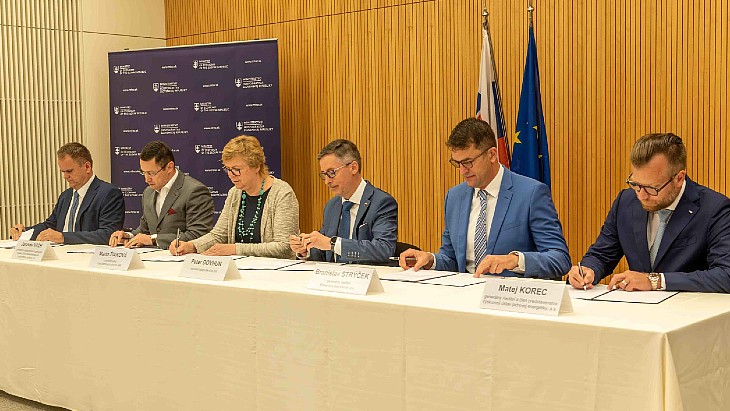
The other signatories of the memorandum were US Steel Košice, the Slovak Electricity Transmission System, VUJE, the Office of Nuclear Supervision and the Slovak Technical University in Bratislava.
There will now be an application for funding from the US government's Project Phoenix, which was announced by US Climate Envoy John Kerry at COP27 last year - it aims to "accelerate the global clean energy transition by providing technical assistance to support decision-making on pursuing the conversion of one or more coal-fired power plants to secure and safe zero-carbon" SMR nuclear energy generation.
It invited countries in Eastern Europe and the Eurasian region to apply to participate by 15 June 2023. The project comes under the US Department of State's Foundational Infrastructure for the Responsible Use of Small Modular Reactor Program in cooperation with the US Department of Commerce's Small Modular Reactor Public-Private Program, "which aims to promote transatlantic cooperation to deploy SMRs in Europe and Eurasia".
According to the Slovak Republic's Ministry of Economy, together with Slovenské elektrárne, which owns coal-fired power plants in Vojany and Nováky, the joint application is for a grant of EUR2 million (USD2.16 million).
Minister of Economy Peter Dovhun said: "One of our key priorities ... together with our partners, is to prepare a gradual and reasonable plan to secure supplies with affordability and climate commitments. The important thing now is to replace emotions with facts, reason and respect physics. When we look at Slovakia's energy mix, which our resources provide us, from this point of view, nuclear energy belongs to this mix."
Branislav Strýček, CEO of Slovenské elektrárne, said: "Ensuring sufficient stable energy for Slovakia and at the same time protecting the environment are the key goals of us energy workers. Each of the signatories of the memorandum possesses important capacities, which we are combining in order to be able to fulfill these goals. We believe that building new technologies, including small modular reactors, is part of the solution to our energy needs. The signing of the memorandum is the first step to start mapping whether these technologies are suitable for Slovakia.
"Demand for electricity will grow - from households and industry. Renewable sources are an important part of our energy future, but it is nuclear technologies that ensure stable and safe supplies to the grid. Small modular reactors are not intended to replace our existing nuclear sources. They should replace coal-fired power plants and be another source of a stable and carbon-free energy mix and Slovakia's self-sufficiency."
Slovakia has four nuclear reactors - Mochovce units 1 and 2 and Bohunice units 3 and 4 - in commercial operation, generating half of its electricity. Mochovce unit 3 was connected to the grid in February, while unit 4 is under construction. A siting permit application was also submitted to the Slovak Nuclear Regulatory Authority earlier this year for a new nuclear power plant near the existing Bohunice plant, by Jadrová Energetická Spoločnosť Slovenska - a joint venture between Slovak radioactive waste management company JAVYS and Czech utility ČEZ.
According to Slovenské elektrárne, the decarbonisation of industry, increased electrification and the closure of coal plants "will cause Slovakia to need approximately 2.6 TWh of electricity per year" more, and an SMR could help meet this demand.